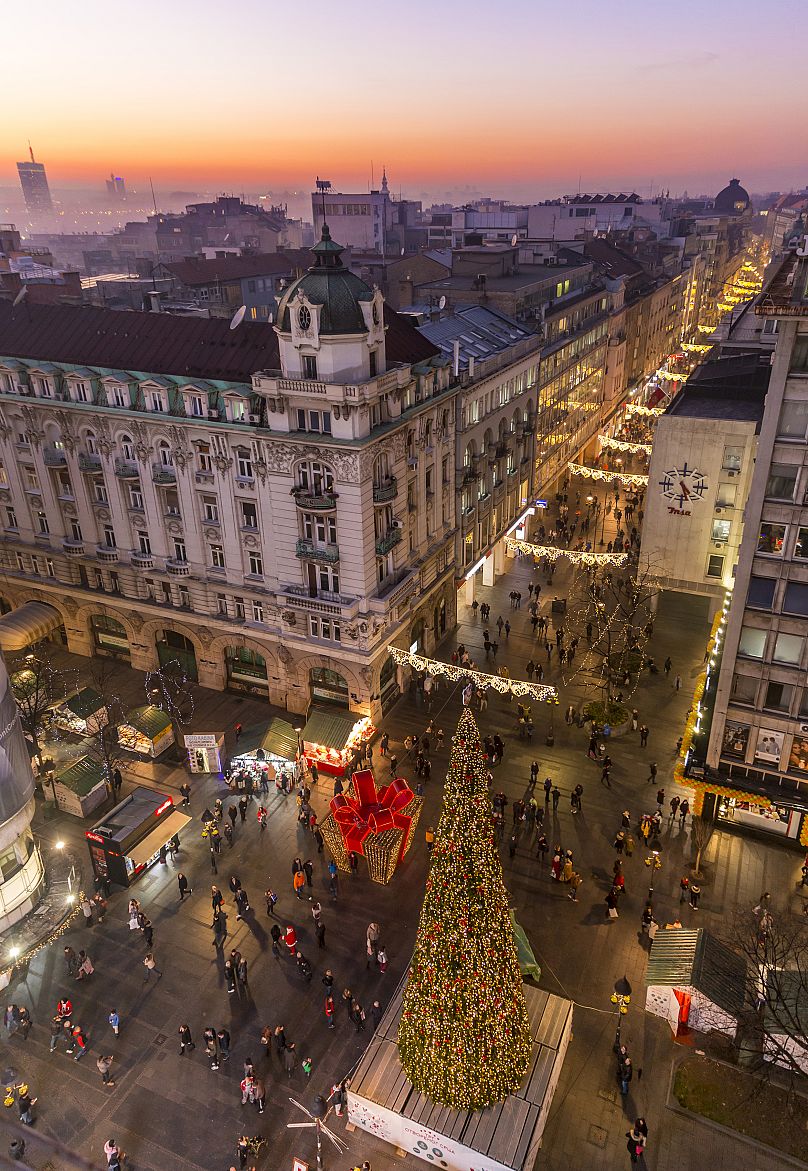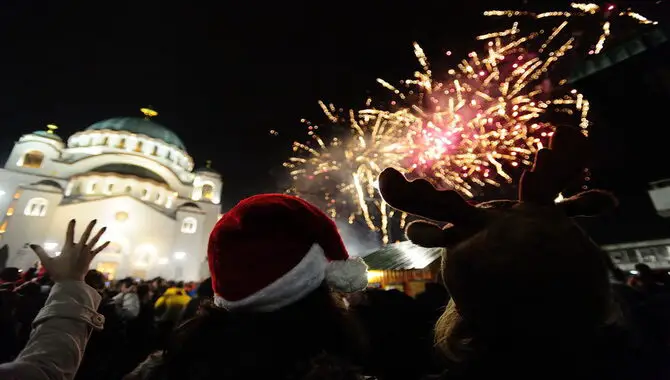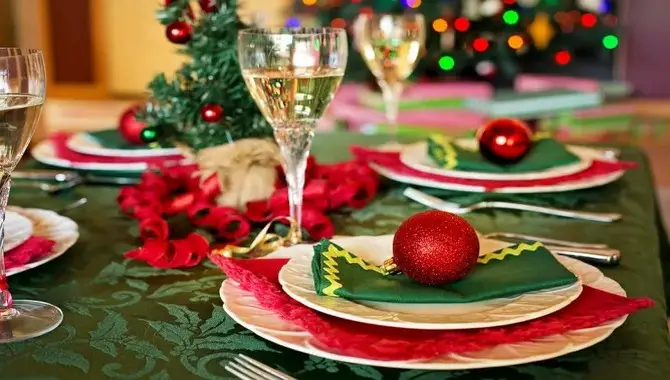Navigating The Festive Landscape: A Comprehensive Guide To Serbian Holidays In 2025
Navigating the Festive Landscape: A Comprehensive Guide to Serbian Holidays in 2025
Related Articles: Navigating the Festive Landscape: A Comprehensive Guide to Serbian Holidays in 2025
Introduction
In this auspicious occasion, we are delighted to delve into the intriguing topic related to Navigating the Festive Landscape: A Comprehensive Guide to Serbian Holidays in 2025. Let’s weave interesting information and offer fresh perspectives to the readers.
Table of Content
Navigating the Festive Landscape: A Comprehensive Guide to Serbian Holidays in 2025

Serbia, a country rich in history and culture, boasts a vibrant tapestry of holidays that reflect its unique heritage and traditions. Understanding these holidays provides a window into the Serbian soul, offering insights into their values, beliefs, and ways of life. This comprehensive guide will explore the significant holidays in Serbia during 2025, providing a detailed overview of their historical context, cultural significance, and customary celebrations.
Key Holidays in 2025:
January:
- New Year’s Day (January 1st): A universal celebration, marking the beginning of a new year. Serbian families often gather for festive meals, exchange gifts, and partake in traditional New Year’s Eve customs like pouring lead, a practice believed to foretell the year ahead.
- Orthodox Christmas (January 7th): A significant religious holiday for the Serbian Orthodox Church, celebrated with fasting, church services, and family gatherings. Traditional Christmas Eve meals often feature a special dish called "Badnjak," a log symbolizing the birth of Christ, which is burned in the hearth.
- Saint Sava’s Day (January 27th): A national holiday honoring Saint Sava, the founder of the Serbian Orthodox Church and a revered figure in Serbian history. Schools are closed for the day, and religious services are held throughout the country.
February:
- Sretenje (February 15th): This national holiday commemorates the proclamation of the First Serbian Uprising against Ottoman rule in 1804. It is a day of remembrance and celebration of Serbian independence.
March:
- International Women’s Day (March 8th): A global celebration recognizing the social, economic, cultural, and political achievements of women. Serbia joins the world in celebrating women’s contributions to society.
April:
- Good Friday (April 18th): A solemn day observed by Christians commemorating the crucifixion of Jesus Christ. It is a day of fasting and reflection.
- Easter Sunday (April 20th): The most important Christian holiday, celebrating the resurrection of Jesus Christ. Serbs celebrate with traditional Easter meals, church services, and the custom of painting eggs red.
May:
- Labor Day (May 1st): A global holiday honoring workers and their contributions to society. It is a day of celebration and reflection on labor rights.
- Victory Day (May 9th): A holiday commemorating the victory of the Allied forces over Nazi Germany in World War II. It is a day of remembrance and honoring the sacrifices made during the war.
- Saint George’s Day (May 6th): A traditional holiday celebrating the patron saint of Serbia. It is often associated with the arrival of spring and the beginning of the agricultural season.
June:
- Pentecost (June 1st): A Christian holiday celebrating the descent of the Holy Spirit upon the apostles. It is observed with church services and special meals.
July:
- Vidovdan (June 28th): A national holiday commemorating the Battle of Kosovo in 1389, a pivotal moment in Serbian history. It is a day of remembrance and reflection on Serbian national identity.
August:
- Assumption of the Virgin Mary (August 15th): A religious holiday honoring the ascension of the Virgin Mary into heaven. It is observed with church services and special meals.
September:
- Day of the Liberation of Belgrade (September 20th): A national holiday commemorating the liberation of Belgrade from Nazi occupation in 1944. It is a day of remembrance and celebration of Serbian freedom.
October:
- Day of the Serbian Revolution (October 5th): A national holiday commemorating the start of the First Serbian Uprising against Ottoman rule in 1804. It is a day of remembrance and celebration of Serbian independence.
November:
- All Saints’ Day (November 1st): A religious holiday honoring all the saints. It is observed with church services and visits to cemeteries.
- Day of Remembrance for Victims of Fascism (November 4th): A national holiday commemorating the victims of the Nazi regime during World War II. It is a day of remembrance and mourning.
December:
- Saint Nicholas Day (December 19th): A traditional holiday honoring Saint Nicholas, the patron saint of children. Children often receive gifts and treats on this day.
- Christmas Eve (December 24th): The eve of Christmas, celebrated with fasting and traditional Christmas Eve meals.
- Christmas Day (December 25th): A religious holiday celebrating the birth of Jesus Christ. It is observed with church services and family gatherings.
Understanding the Significance:
These holidays provide a unique opportunity to delve into the rich cultural tapestry of Serbia. They offer glimpses into the country’s historical struggles, religious beliefs, and traditional practices. Celebrating these holidays fosters a sense of national pride and unity, connecting generations through shared traditions and values.
FAQs:
Q: Are all Serbian holidays observed as public holidays?
A: Most of the holidays listed are observed as public holidays in Serbia, meaning that schools, businesses, and government offices are closed for the day. However, some religious holidays, like Saint Sava’s Day, may be observed as school holidays but not necessarily public holidays.
Q: What are some traditional customs associated with Serbian holidays?
A: Each holiday has its own set of unique customs. For example, at Christmas, families often gather for a special meal called "Badnjak" and exchange gifts. Easter celebrations feature the traditional red-painted eggs and the custom of "čupanje" (pulling) for good luck. Many holidays also include traditional folk music, dancing, and festive attire.
Q: How can I experience Serbian holidays firsthand?
A: Visiting Serbia during a holiday period offers a unique cultural immersion. Attending church services, participating in traditional celebrations, and interacting with locals provide a firsthand glimpse into Serbian culture. Many cities and villages also host special events and festivals during holiday seasons.
Tips for Celebrating Serbian Holidays:
- Respect local customs: It is important to be respectful of local customs and traditions when celebrating Serbian holidays. Dress appropriately, be mindful of religious practices, and avoid any actions that could be considered offensive.
- Learn about the history and significance of the holidays: Understanding the history and significance of each holiday will enhance your appreciation for the traditions and customs.
- Engage with locals: Talk to locals about their experiences and perspectives on the holidays. They can provide valuable insights and cultural context.
- Try traditional foods and drinks: Serbian cuisine is rich and flavorful, and many dishes are associated with specific holidays. Try traditional foods and drinks to enhance your cultural immersion.
- Attend local events and festivals: Many cities and villages host special events and festivals during holiday seasons. These events offer a chance to experience the local culture and traditions firsthand.
Conclusion:
Exploring the holidays of Serbia provides a fascinating window into the country’s rich cultural heritage. From religious celebrations to national commemorations, these holidays reflect the values, beliefs, and traditions that have shaped Serbian identity over centuries. By understanding and appreciating these holidays, we gain a deeper understanding of Serbia’s unique cultural tapestry and the enduring spirit of its people. Whether you are a traveler seeking a cultural immersion or simply curious about the world around you, understanding Serbian holidays offers a rewarding journey into the heart of this vibrant nation.






![Serbia vacations & tours in[years]](https://www.responsiblevacation.com/imagesClient/22755_3740.jpg)

Closure
Thus, we hope this article has provided valuable insights into Navigating the Festive Landscape: A Comprehensive Guide to Serbian Holidays in 2025. We appreciate your attention to our article. See you in our next article!